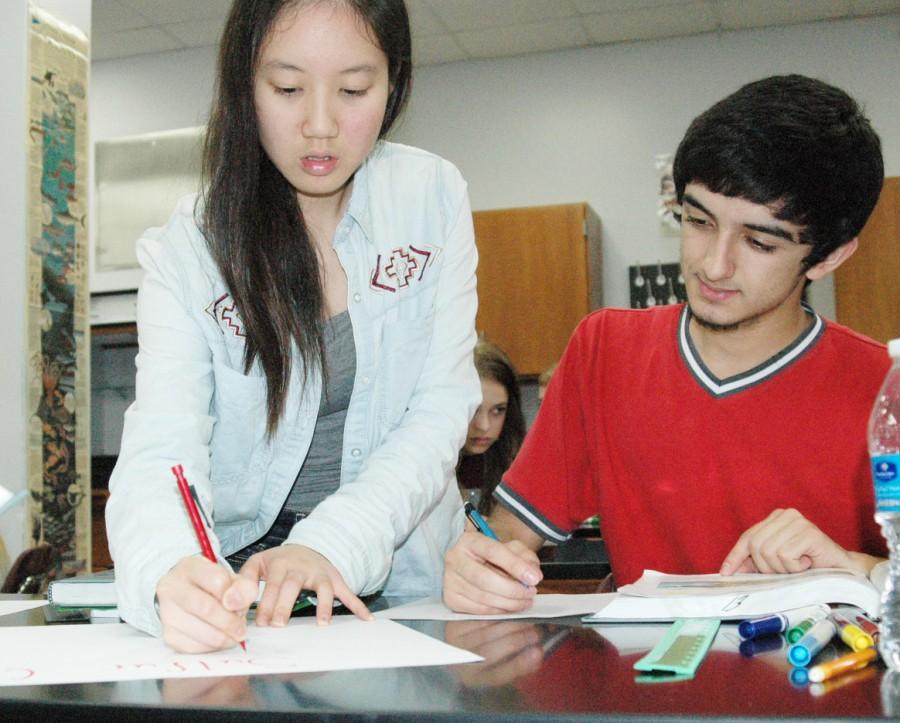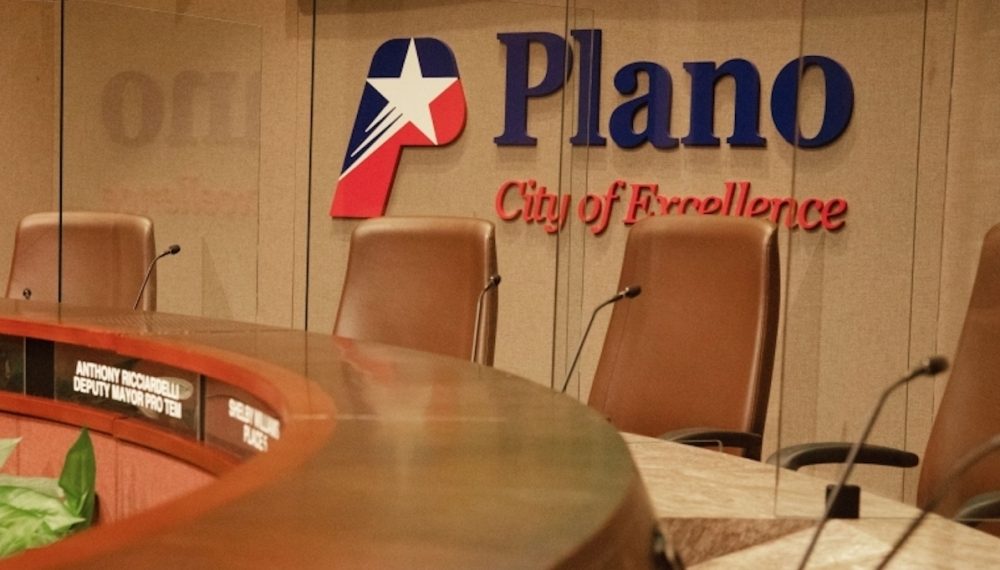AP Environmental Science curriculum undergoes overhaul
Seniors Ting-Wei Hsu and Ryan Hosein work to complete an activity about soil in Mark Yoder’s fourth period AP Environmental Science class.
October 8, 2014
AP Environmental Science (APES) curriculum is changing rapidly due to changes being implemented by APES teachers throughout the district. Formerly a Power Point based class, the new modifications to the curriculum make the class a project based course with the intention of encouraging students to get more involved in the curriculum.
“The APES curriculum has always been successful at Plano,” APES teacher Elizabeth Carson said. “But the one thing we felt was missing from the curriculum was a real life, hands on application.”
The teachers involved with the changes said a lot of hours have been put into the recent alterations. Carson said it wasn’t an easy process, and they are still trying to figure everything out.
“We have also been working closely with our district science curriculum coordinator and getting information from the Academy on how they manage their project based learning classes,” Carson said. “Because we have the added need to to prepare students for the AP exam, our curriculum is very different and specialized.”
According to former APES student senior Aaisha Dossal, last year’s curriculum consisted of one project each six weeks and two to three Socratic seminars throughout the school year. Dossal said the more traditional curriculum worked for her.
“Last year’s curriculum was somewhat project based, but there was a lot of lectures and PowerPoint notes and you had to read the chapter as well,” Dossal said. “The labs we did helped me understand the bigger concepts.”
According to Carson, APES AP exam scores have always been above the national average. Carson added that this new way of learning has been proven to help improve test scores due to enhancing critical thinking skills.
“My favorite part is going to be when we hopefully get one of our landscape plans established on campus,” Carson said. “We are planning on working on it in the spring, especially in the time after the AP exams. I feel like it is a great opportunity for APES classes to have a positive impact on the environment.”







